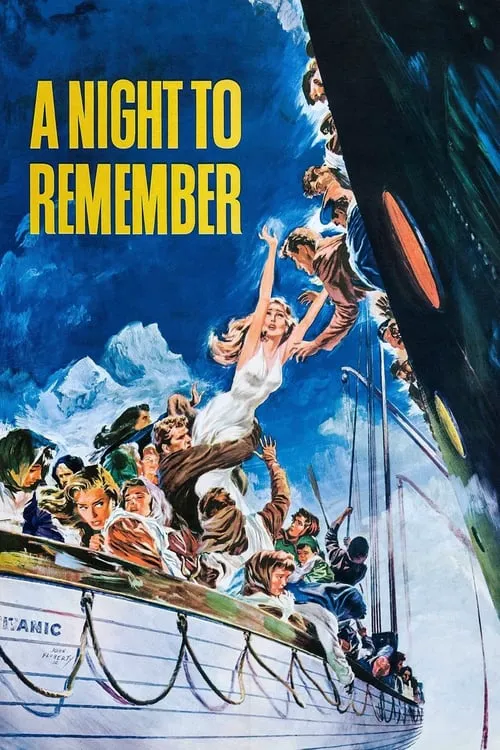A Night to Remember

Plot
The year is 1912, and the RMS Titanic, touted as the most luxurious and technologically advanced ship in the world, is preparing for its maiden voyage from Southampton to New York. As the massive vessel steams through the calm waters of the North Atlantic, Captain Edward John Smith stands confidently on the bridge, his years of sailing experience and the ship's seemingly impenetrable nature giving him a sense of invincibility. Unbeknownst to him, the Titanic's speed and size are not its only boasts; the crew's carelessness, combined with a series of avoidable mistakes, will ultimately lead to one of the most devastating maritime disasters in history. Charles Lightoller, the ship's second officer, is the narrative's central figure. He is a seasoned sailor, having started his career at a young age, and has earned the respect of his peers and superiors alike. As the Titanic approaches the danger zone, Lightoller is on high alert, monitoring the seas and the surrounding landscape for any signs of impending doom. The crew's warnings about icebergs in the area are heeded, but not with the level of urgency that a situation like this demands. The captain's decision to maintain a steady clip is a reckless one, and one that will be revisited and scrutinized by the crew and the authorities in the days and months to come. The iceberg that will seal the Titanic's fate is a behemoth of a mass, hiding just beneath the surface of the icy waters. The crew, though aware of the presence of the berg, fail to take adequate action, and as the ship inches closer and closer, it becomes clear that they are about to make contact. At approximately 11:40 PM on the night of April 14th, the Titanic strikes the iceberg, the force of the collision sending shockwaves throughout the ship. At first, the extent of the damage is unknown, and many on board believe that the ship, despite a slight deviation from its course, will still make it to New York. However, the minutes, hours, and days that follow reveal the true horror of the situation. The Titanic is taking on water at an alarming rate, and the crew, though acting with a sense of urgency, are unable to stem the tide. As the ship begins to list, passengers are becoming increasingly panicked, and it soon becomes apparent that the tragedy unfolding on the high seas is far from over. The ship's builders had claimed that the Titanic was unsinkable, a notion that is about to be brutally proven. The stark reality of the situation slowly dawns on the crew and passengers, who soon realize that the ship is woefully underprepared for an emergency of this magnitude. With over 2,000 people on board and a paltry 1,178 lifeboats, it's clear that there are not enough vessels to save everyone. As panic sets in, the ship's crew and officers spring into action, attempting to mitigate the disaster by loading as many people as possible into the lifeboats. However, these efforts are marred by inefficiency, miscommunication, and the sheer chaos of the situation. Women and children are given priority in boarding the lifeboats, while men are often left behind, fighting a desperate battle against the crushing reality of their impending fate. In a moment that will haunt the survivors for the rest of their lives, those left on board, many of whom will be trapped below deck, are forced to watch in horror as the ship they once called home succumbs to the unforgiving waters of the North Atlantic. As the Titanic finally succumbs to the icy grip of the ocean, its stern pointing towards the sky, the sounds of desperation and despair can be heard echoing over the water. Those who managed to escape on the lifeboats are left to grapple with the enormity of their loss, and the realization that an incredible number of lives were lost in the span of a few short hours. In a somber and reflective ending to the film, Charles Lightoller, though one of the few officers on board to survive, is left to deal with the consequences of his crew's actions, both before and after the disaster. As he reflects on the events of that fateful night, it becomes clear that he, along with the rest of the crew and passengers, was an unwitting participant in a tragic tale of hubris, negligence, and catastrophic failure.
Reviews
Recommendations




